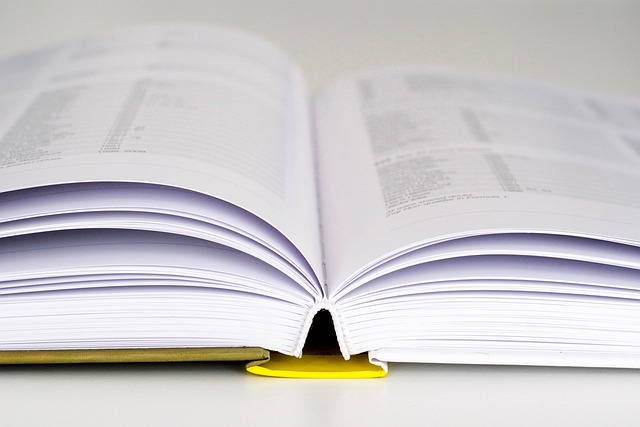UK Educational Textbook Translation Services maintain academic integrity by employing linguistic experts and subject matter specialists. They navigate cultural nuances, idioms, and historical references in source materials to ensure accurate, resonant translations for global students. A meticulous quality assurance process ensures alignment with UK curriculum standards. Ethical considerations, open communication, and transparent collaboration build trust. Advanced AI tools enhance accuracy while preserving complex concepts and authenticity. These services are crucial for providing high-quality learning materials worldwide, adapting content for diverse linguistic backgrounds, and fostering global understanding in education.
In the realm of education, preserving integrity in translations is paramount. This article delves into the critical aspects of accurate UK educational textbook translations, exploring challenges from cultural nuances to idiomatic expressions. We examine the pivotal role of native language experts and robust quality assurance processes. Additionally, ethical considerations, technological advancements, successful case studies, and strategies for publisher-translator collaboration are scrutinized. The ultimate goal is to ensure that UK educational textbooks maintain their integrity across diverse translation landscapes.
- Understanding Educational Integrity: The Cornerstone of Accurate Translation
- Challenges in UK Textbook Translations: Cultural Nuances and Idiomatic Expressions
- The Role of Native Language Experts in Preserving Integrities
- Quality Assurance Processes for Educational Materials: A Comprehensive Approach
- Ethical Considerations in Translating Sensitive Academic Content
- Technologies Advancing Translation Accuracy for Textbooks
- Case Studies: Successful Translations that Maintained Educational Standards
- Building Trust: Strategies for Transparency and Collaboration between Publishers and Translators
- The Impact of Machine Translation on UK Educational Textbook Quality
- Future Trends: Ensuring Integrity in an Evolving Translation Landscape
Understanding Educational Integrity: The Cornerstone of Accurate Translation

Educational integrity is paramount when translating UK educational textbooks, ensuring content accuracy and fidelity to the original intent. This involves more than just word-for-word substitutions; it requires a deep understanding of the subject matter and pedagogical strategies. Accurate translations must convey not only the meaning of terms but also the underlying concepts and teaching methodologies.
Professional translation services specializing in UK educational textbooks embrace this challenge by employing linguists with expertise in both the source and target languages, as well as subject-matter specialists who can navigate the nuances of academic discourse. By prioritizing educational integrity, these services ensure that students worldwide receive high-quality learning materials that maintain the original quality and effectiveness of the UK curriculum.
Challenges in UK Textbook Translations: Cultural Nuances and Idiomatic Expressions

The translation process for UK educational textbooks presents a unique set of challenges, especially when aiming to preserve integrity and accuracy. Cultural nuances and idiomatic expressions are at the heart of this difficulty. Many phrases that flow naturally in English have no direct equivalent in other languages, making it crucial for translators to understand the cultural context deeply. For instance, certain idioms or colloquialisms might not translate well literally, as they depend on specific cultural references or historical events unique to the UK.
UK educational textbook translation services must employ native speakers and subject matter experts to navigate these complexities. They should also utilize modern translation technologies that can identify and suggest alternative phrases while maintaining the original meaning and intent of the text. This meticulous approach ensures that students across the globe receive textbooks that not only convey accurate information but also resonate with their cultural backgrounds, fostering a deeper understanding of the subject matter.
The Role of Native Language Experts in Preserving Integrities

The role of native language experts is pivotal in preserving educational integrity during translations, especially for UK educational textbooks. These professionals possess not only a deep understanding of the source language but also a keen awareness of cultural nuances and academic terminology specific to their field. By meticulously translating and localizing content, they ensure that the meaning, tone, and intent of the original material are accurately conveyed in the target language.
Native experts are adept at identifying and avoiding common pitfalls in translation, such as literal interpretations that might lose context or cultural references that could confuse readers. They play a crucial role in maintaining academic integrity by staying true to the author’s intent, ensuring consistent terminology throughout, and preserving the original structure and flow of ideas. This level of expertise is vital for UK educational textbook translators, aiming to deliver high-quality materials that meet rigorous education standards while resonating with global audiences.
Quality Assurance Processes for Educational Materials: A Comprehensive Approach

Maintaining educational integrity is paramount when translating UK educational textbooks, requiring a meticulous and comprehensive approach to quality assurance (QA). This involves multiple stages designed to ensure accuracy, cultural appropriateness, and compliance with educational standards. The process begins with a thorough review of source content by language experts who assess terminology, conceptual equivalence, and the overall flow of ideas. This initial phase is crucial in preserving the integrity of complex concepts and ensuring they are conveyed effectively in the target language.
Subsequent steps include linguistic validation by native speakers to catch subtle errors or ambiguities missed during the first review. This is followed by a rigorous proofreading process that checks for consistency, formatting, and any remaining linguistic inaccuracies. Specialized educational consultants then evaluate the translated material, ensuring it aligns with UK curriculum standards and effectively communicates the intended learning objectives. Such a comprehensive QA approach guarantees that UK educational textbooks, when translated, maintain their quality, integrity, and effectiveness in teaching and learning contexts.
Ethical Considerations in Translating Sensitive Academic Content

When translating sensitive academic content, such as educational textbooks intended for UK schools, ethical considerations are paramount to preserve the integrity of the material. Translators must ensure that cultural nuances and specialized terminology accurately represent the original text while maintaining its meaning and context. Misinterpretation or inappropriate adaptation can lead to misinformation, impacting students’ learning experience.
UK educational textbook translation services should adhere to strict ethical guidelines, employing translators with subject matter expertise in education. This approach guarantees a deep understanding of academic discourse, ensuring that translated content aligns with curriculum standards and effectively communicates the original author’s intent. Transparency and communication between translators, educators, and stakeholders are vital to addressing potential challenges and ensuring the highest quality translations.
Technologies Advancing Translation Accuracy for Textbooks

In today’s globalised educational landscape, ensuring the preservation of educational integrity in translations is paramount, especially for UK educational textbooks. Advanced technologies are revolutionising translation accuracy, addressing historical challenges in this field. Machine translation tools, powered by artificial intelligence, have evolved to offer sophisticated language processing capabilities. These AI-driven systems analyse context, syntax, and semantic structures, producing more accurate and culturally appropriate translations compared to traditional methods.
For UK educational textbook translation services, leveraging these technologies ensures that technical terms and complex concepts are conveyed faithfully across languages. This advancement is crucial for maintaining the integrity of academic content, ensuring students worldwide receive high-quality, consistent learning materials. As a result, educators can focus on fostering inclusive classrooms, catering to diverse linguistic backgrounds without compromising the authenticity of educational content.
Case Studies: Successful Translations that Maintained Educational Standards

Successful translations that maintained educational standards offer valuable case studies for UK educational textbooks translation services. For instance, consider a project involving the adaptation of a science textbook from English to Spanish. The translator not only ensured accurate scientific terminology but also preserved the original narrative flow and complex conceptual explanations. This involved meticulous research into cultural nuances and pedagogical methods specific to both languages, ensuring that the translated content remained accessible and engaging for Spanish-speaking students.
Another notable case involves the translation of a history textbook from ancient texts into modern Arabic. Here, translators had to navigate not only linguistic differences but also historical context and cultural sensitivities. By collaborating with experts in both education and history, they were able to produce a text that was both faithful to the original and culturally relevant for Arab students. These examples highlight how professional translation services can meet and exceed educational standards, providing accessible, accurate, and engaging learning materials for diverse student bodies worldwide.
Building Trust: Strategies for Transparency and Collaboration between Publishers and Translators

Building trust is paramount in maintaining educational integrity during translations, especially for UK educational textbooks. Publishers and translators must foster open communication and transparency throughout the process. Collaborative efforts ensure that both parties are aligned with the project’s goals and understand the importance of accuracy and cultural sensitivity. Regular meetings, clear guidelines, and direct feedback channels enable a shared commitment to quality.
Transparency involves sharing detailed information about the text, its context, and any specific requirements from the educational institution. By collaborating closely, publishers and translators can navigate complex linguistic nuances and cultural references accurately. This strategy not only enhances the final translated product but also strengthens the professional relationship between the two entities, fostering a foundation for future successful collaborations in UK educational textbooks translation services.
The Impact of Machine Translation on UK Educational Textbook Quality

The advent of machine translation has significantly impacted various industries, education being no exception. In the UK, where educational standards are globally renowned, the integration of machine translation technologies raises important questions about maintaining academic integrity in text-based materials, particularly textbooks. While machine translation tools offer efficiency and accessibility by providing instant translations, they also introduce potential pitfalls that could compromise the quality and accuracy of UK educational textbooks.
When translating educational content, nuances, and complex terminology specific to various subjects must be handled carefully. Machine translators often struggle with preserving these intricacies, leading to possible errors or misinterpretations. This is especially critical in subjects like science, medicine, law, or history, where precise language use can make a significant difference in understanding and learning outcomes. Using subpar translation services for UK educational textbooks could result in inconsistent information, undermining the integrity of the curriculum and potentially hindering students’ academic progress. Therefore, schools, publishers, and educators must exercise caution when adopting machine translation tools, ensuring that human expertise remains integral to quality control measures.
Future Trends: Ensuring Integrity in an Evolving Translation Landscape

As the global education landscape continues to evolve, so too does the need for advanced translation services, particularly in the UK educational textbooks sector. Future trends in translation will see an increased emphasis on maintaining academic integrity and ensuring that complex educational content is accurately conveyed across languages. With the rise of digital learning platforms and online resources, there’s a growing demand for dynamic translation solutions capable of adapting to new media formats and accessible, high-quality interpretations.
UK Educational Textbooks Translation Services will play a pivotal role in this evolving landscape. By leveraging cutting-edge technology, such as machine learning and AI, while still relying on human expertise, translators can deliver precise, culturally sensitive renditions that respect the original intent of the content. This balance between innovation and human touch is crucial to preserving educational integrity and fostering global understanding in diverse academic communities.
In the realm of UK educational textbook translations, maintaining integrity is paramount. Navigating cultural nuances, relying on native language experts, and adopting robust quality assurance processes are essential strategies. Ethical considerations and innovative technologies, such as machine translation, play a significant role in enhancing accuracy. The case studies presented highlight successful implementations, while collaborative efforts between publishers and translators build trust. Moving forward, staying attuned to future trends will ensure that educational standards remain uncompromised in an evolving translation landscape, thus providing students with the highest quality UK educational textbooks translation services.
